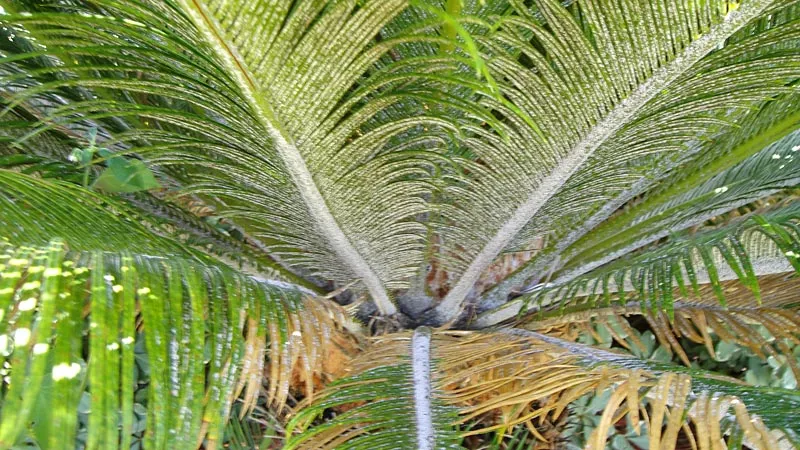Aulacaspis Yasumatsu
The Asian cycad scale, Aulacaspis yasumatsui, is an armored scale native to Thailand and southern China. Since it was found in Miami in 1996, it has spread quickly through Florida and other parts of the world on shipments of nursery stock. Asian cycad scales produce a white crust on the fronds of infested plants, making them appear as though they are snow covered. At its worst, an infestation of Asian cycad scale can completely coat a sago palm within months and cause its death within one year. The rapid reproduction of this insect – paired with its ability to infest root systems – makes Asian cycad scale among the most important insect pests of Florida.
Treatment Strategy
Although Asian cycad scale is difficult to control, insect control treatments are available that can significantly reduce populations on plants. Often living in the soil, these insects are not well controlled by contact insecticides. Instead, systemic treatments that move into the plant tissues these scales feed in are recommended. Utilizing a mixture of deep-root fertilization, used coffee ground soil ammendment, and the systemic insecticides, we have seen very good results at saving Sago Palms in Gainesville, Florida.
How Is It Spread?
Asian cycad females lay over 110 eggs that hatch in 8-12 days. In the spring, newly emerged crawlers spread to new feeding sites by wind or other means. After feeding has started, the scale remains at the same site for the remainder of its life cycle and creates a white, waxy covering to protect itself from predators. Females go through three instars (life stages) before becoming adults 28 days after hatching. There are multiple generations of Asian cycads each year.
Susceptible Trees
Plants in the cycad family, with the most affected being the King and Queen sago palms, cardboard palms and coonties.
Symptoms
• Yellow spots on the upper surface of fronds, then fronds become brown and desiccated.
• White, waxy covering is readily visible and can coat the entire plant.
Lookalikes
None
Timing
Spring; as leaves are emerging
Urgency
High
Risk Of Spreading
High


